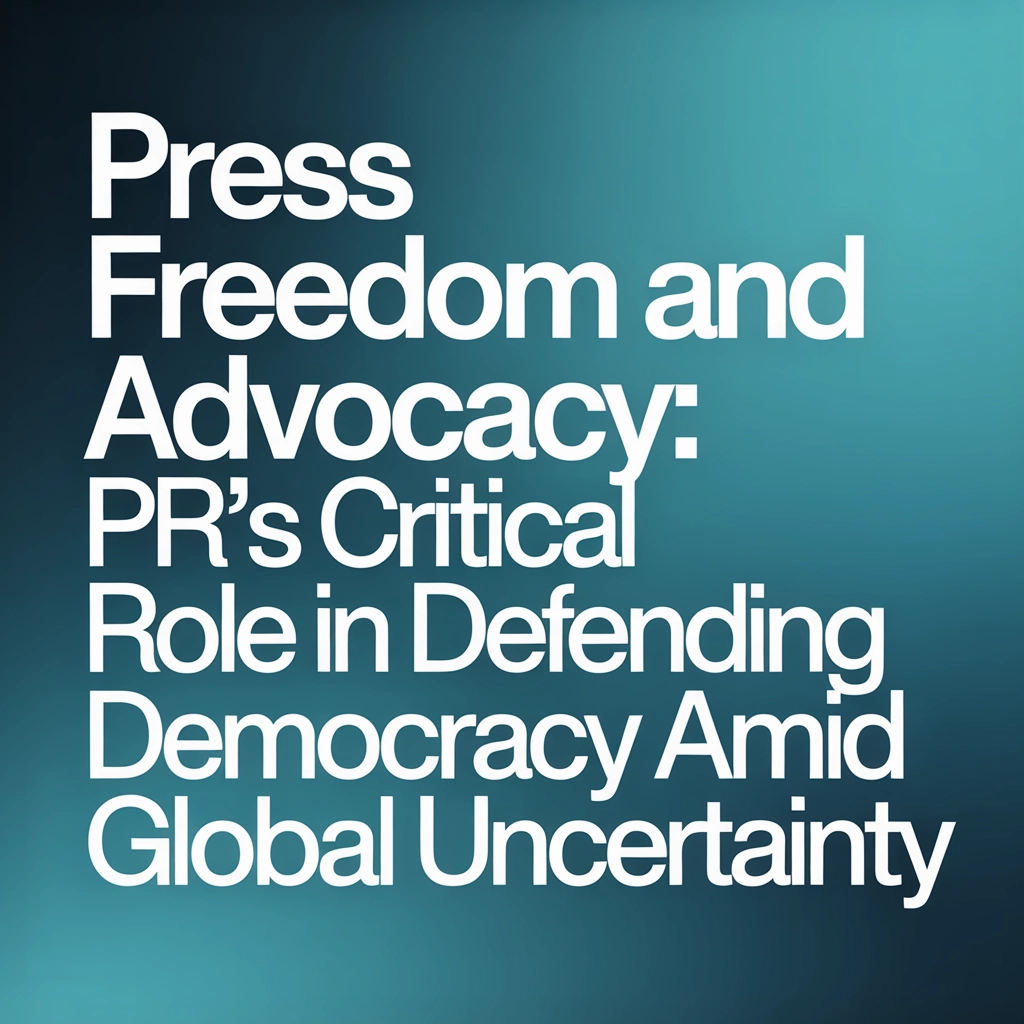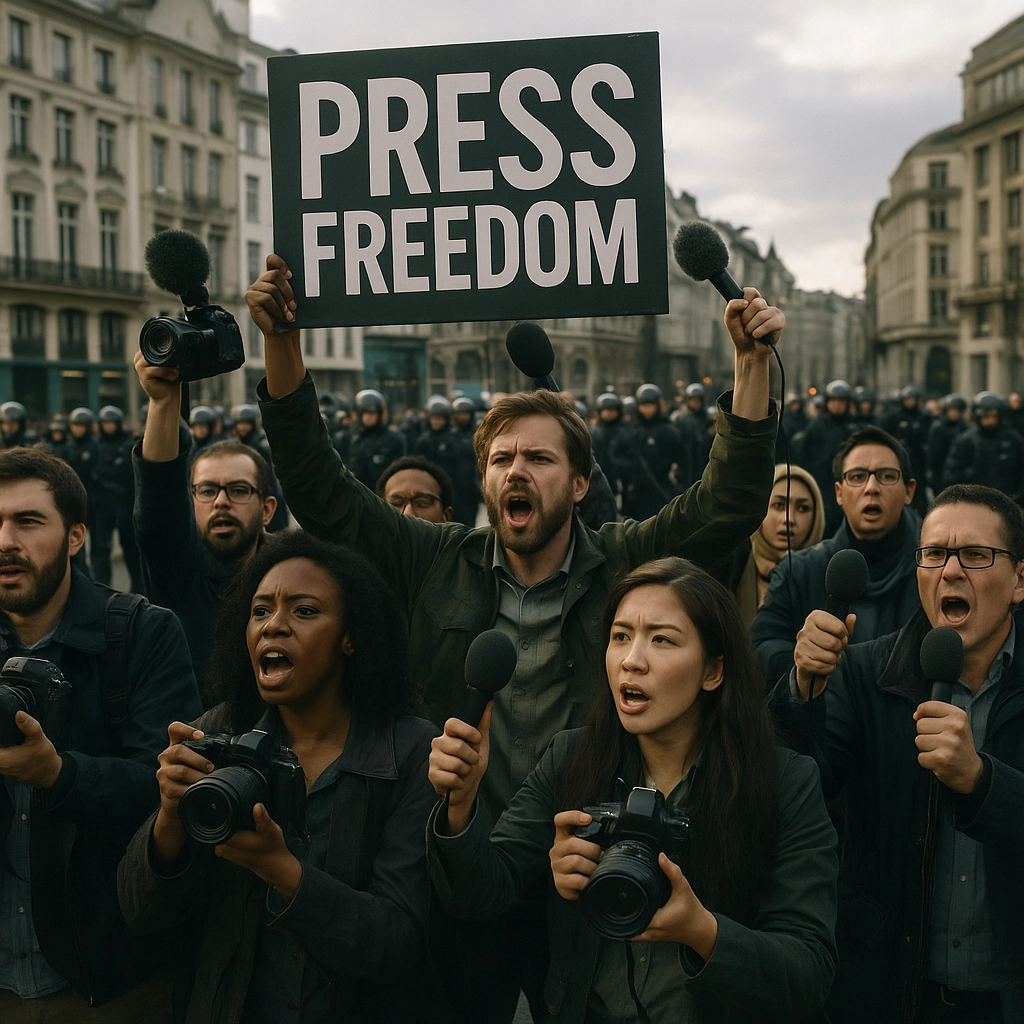
The Democratic Foundation of Press Freedom
Press freedom is not just a lofty ideal—it’s a practical, everyday guardian of democracy. Commonly called the “Fourth Estate,” a free press holds power to account and keeps citizens informed with facts rather than filtered propaganda. Where journalists question politicians and public servants without fear, democracy thrives. But the relationship is deeper than exposure of wrongdoing or scandal; a society’s ability to vote freely and judge its leaders depends on journalists reporting openly on the issues that matter.
Without free and independent reporting, what do we lose? First, transparency is replaced by secrecy. Next, propaganda replaces public debate. Finally, democratic rights are hollowed out as citizens are denied the information needed to make real choices. This leads to a gradual, but dangerous, erosion of trust—not just in government and media, but in democracy itself.
Contemporary Threats to Press Freedom
The challenges facing journalism today are broad, complex, and evolving rapidly. In the digital era, threats range from cyber-harassment and coordinated online smear campaigns to state surveillance and restrictive laws targeting journalists. These new forms of control supplement, and sometimes replace, more traditional means—such as censorship, violence, or economic pressure on media outlets.
Unfortunately, the statistics tell a worrying story: every day, journalists across the globe are threatened, injured, imprisoned, or worse because of their work. Alarmingly, these attacks are seldom isolated incidents; they form part of a wider pattern aimed at suppressing free speech, chilling debate, and limiting the public’s access to reliable information. During times of crisis—be it health emergencies, political unrest, or war—these threats can intensify, with independent journalism often a casualty of power struggles.

Strategic Advocacy Approaches
With press freedom under threat, advocacy cannot stand still. Leading organisations, independent journalists, and concerned citizens alike are fighting back with new and effective strategies. Advocacy for press freedom is now a well-organised field, blending everything from international lobbying and on-the-ground training to digital campaigns and legal interventions.
One standout approach comes from the Associated Press and other major news agencies—they monitor legislative threats, push back on efforts to criminalise reporting, and support journalists with skills and digital safety training. Coalitions of publishers and editors provide behind-the-scenes access to government decision-makers across countries, further amplifying press freedom campaigns.
Advocacy is not just about protecting individual journalists; it’s about safeguarding societal rights. Lobbying for stronger legal protections, campaigning for those unjustly detained, and creating public awareness are equally vital parts of the effort.
Public Relations: The Engine Room of Press Freedom Advocacy
This is where public relations (PR) makes its mark. At its best, PR isn’t about spinning the news—it’s about shining a light on the truth and mobilising action.
Building Awareness and Shaping Perceptions
A key PR function is raising awareness, both in the public and among key stakeholders. This might mean running campaigns on why journalist safety matters, using real-life stories to humanise the issue or bringing together influential voices under a united banner. The objective is clear: make the case that an attack on the press is an attack on everyone’s right to know.
Strategic messaging by PR teams plays a crucial role. PR campaigns counter misinformation and hostile narratives by showing that press freedom and democratic health are inseparable. Through clear, compelling storytelling, PR professionals help people see what’s at stake.

Coalition-Building and Influencing Decision-Makers
PR also excels in coalition-building. Whether through global networks or grassroots alliances, PR practitioners connect journalists, NGOs, legal experts, and diplomats to amplify advocacy. This cooperation magnifies pressure, driving action on everything from law reform to rapid response for threatened journalists.
Lobbying and missions organised by PR professionals can bring direct influence to governments or institutions dragging their feet on press freedom. Strategic events—think editorial roundtables, public forums, or high-profile media days—draw attention to urgent issues and foster opportunities for meaningful change.

Global Coordination and Diplomatic Engagement
The battle for press freedom is increasingly international. Authoritarian crackdowns on journalism often spill over borders, so the response must be global too. International coalitions use their networks to support threatened journalists, facilitate emergency visas, and drive diplomatic pressure for accountability and reform.
Diplomacy can make all the difference in countries hostile to media independence. Here, PR-led advocacy, supported by high-level government engagement, often provides the lifeline that allows investigative journalism to survive amidst repression.

Facing the Future: Press Freedom as a Security Priority
Looking ahead, the fight for a free press is only going to get tougher as crises—economic, political, ecological—increase in number and intensity. That’s why advocates and PR strategists now frame press freedom as both a human right and a security issue. Societies with open media are more stable and more resilient to disinformation and unrest.
This means PR strategies must constantly evolve. Adapting to rapid shifts in technology, audience behaviour, and political risk is part of the job. So, too, is ensuring every campaign connects the dots: between press freedom, access to information, and the big-picture health of democratic institutions.
At Team Britannia PR, we’re proud to play our part—whether supporting press freedom campaigns directly or partnering with organisations committed to defending the Fourth Estate. For more about our approach and values, visit Team Britannia PR’s website.

Want to discuss partnering or learn more about our advocacy work?
Contact Team Britannia PR and let’s stand up for the foundations of democracy—together.
